Recent Posts
- Strengthening Industry Collaboration: CSE Hosts IAB Meeting for CS and CE Programs
- CSE Students Secure First Place at Snoonu Hackathon 2026
- CSE Faculties Receive Grants on Institutional Collaboration between Qatar University & Khalifa University
- Computer Engineering Practicum Demo Day & Contest (4th Edition)
- CSE faculty receives research funding from Google
Archives
- January 2026
- December 2025
- November 2025
- September 2025
- August 2025
- May 2025
- February 2025
- January 2025
- December 2024
- November 2024
- September 2024
- June 2024
- May 2024
- April 2024
- March 2024
- February 2024
- January 2024
- December 2023
- November 2023
- October 2023
- September 2023
- June 2023
- May 2023
- April 2023
- March 2023
- February 2023
- January 2023
- December 2022
- November 2022
- October 2022
- September 2022
- August 2022
- May 2022
- April 2022
- March 2022
- February 2022
- January 2022
- December 2021
- November 2021
- October 2021
- September 2021
- August 2021
- July 2021
- May 2021
- April 2021
- March 2021
- February 2021
- January 2021
- December 2020
- November 2020
- October 2020
- September 2020
- August 2020
Categories
AI Olympiad showcases talent of CSE students in programming, mathematics and robotics
June 24, 2023 / Leave a comment
Three students from Qatar University (QU) showcased their exceptional talent in the second edition of the Arab Artificial Intelligence Olympiad that was organized by Arab Robotics and AI Association, in collaboration with STEAM Centre on 24 June 2023, in Amman, Jordan. The event has featured five competitions that served as a platform for Arab youth of all age groups in the fields of programming, mathematics and algorithms, computer vision, cybersecurity, and embedded systems.
The outstanding participants from QU were granted the prestigious Talent Scholarship. Faisal Abdullah Salam Batis, Marcus Wein Esmiller Monteiro, and Galal Faez Salem Ban Amr excelled in various courses and secured top positions in multiple categories at the Olympiad. Marcus and Galal secured the first place in the programming course, while Marcus, Galal, and Faisal achieved the second position in the embedded systems course. Faisal also claimed the third spot in the mathematics and algorithms course.
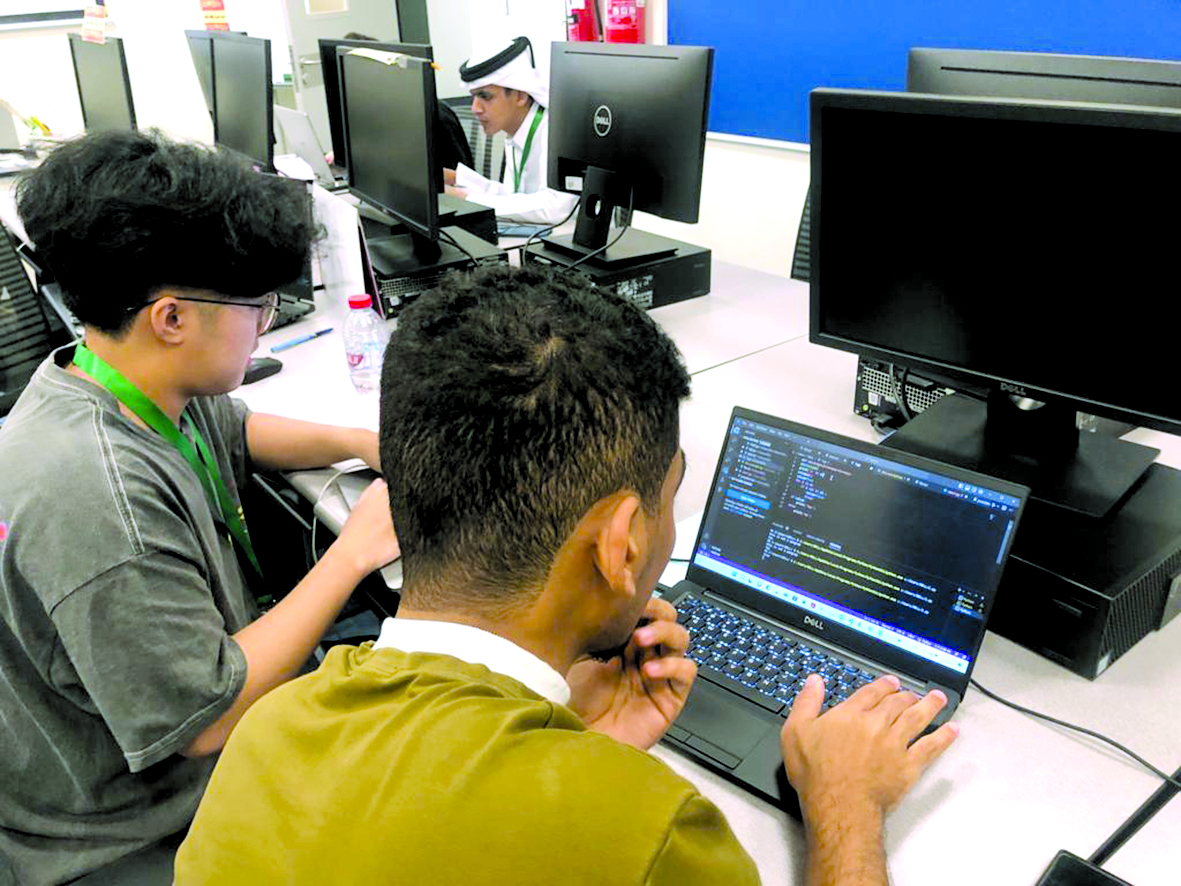
Knowing that in this year, more than 150 students from Jordan, Palestine, Kuwait, Qatar, Libya, Yemen, and Egypt representing over 20 schools and 13 universities from around the Arab world participated in the Olympiad.
Commenting on the event, Dr. Saleh Al-Hazbi, Lecturer of Computer Science at QU, said, “The Artificial Intelligence Olympiad is a competition that aims to raise awareness about the growing significance of AI in today’s world. Our participating students, who have showcased their talent in various categories, have been accepted into QU’s prestigious Talented Students Program. This program, offered at QU, aims to attract students with exceptional talents in different fields.”
Marcus Monteiro, the winner of first place in the programming course, expressed his thoughts on the experience, saying, “I, along with my fellow participant, Galal, was extremely nervous, but we realized the competition would be tough with participants from other countries. However, as we began answering the questions, we gradually gained more and more confidence. I told my colleague, ‘We will win this competition for Qatar’.” He stated, “The future of artificial intelligence is very bright. Many people believe that AI will take away people’s jobs, but we see it as a tool for the future, making us smarter and more capable.”
reference: Here
CSE faculties win the best paper award at IWCMC23
June 23, 2023 / Leave a comment
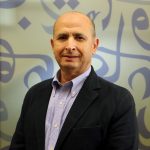
A collaborative team including two CSE faculty members has received the best paper award at the International Wireless Communications and Mobile Computing Conference (IWCMC23), held in Marrakesh, Morocco, between June 19-23, 2023. The awarded paper is titled “Real-time Imitation of Autonomous MCG Node using Dual ECG Probing IoT Node Suitable for Delivery by UAV”, and co-authored by Dr. Khalid Abualsaud and Dr. Elias Yaacoub from our department.
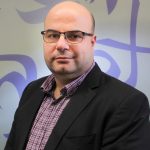
The paper is an outcome of research project NPRP13S-0205-200270 from the Qatar National Research Fund (QNRF) led by Dr. Khalid Abualsaud. The work was done in collaboration with Prof. Tamer Khattab (Dept of Electrical Engineering at QU) with medical advice from collaborators from Al-Ahli Hospital (a partner in the project) and the New York Presbyterian Hospital.
The work consists of building a testbed that uses electrocardiography (ECG) signals to generate magnetocardiography (MCG)-like signals, which can be used for various heart disease detection, including arrhythmia. A working prototype is built with weight and dimensions suitable to be carried by drones, for delivery to remote areas lacking medical infrastructure, e.g., in disaster recovery scenarios.”
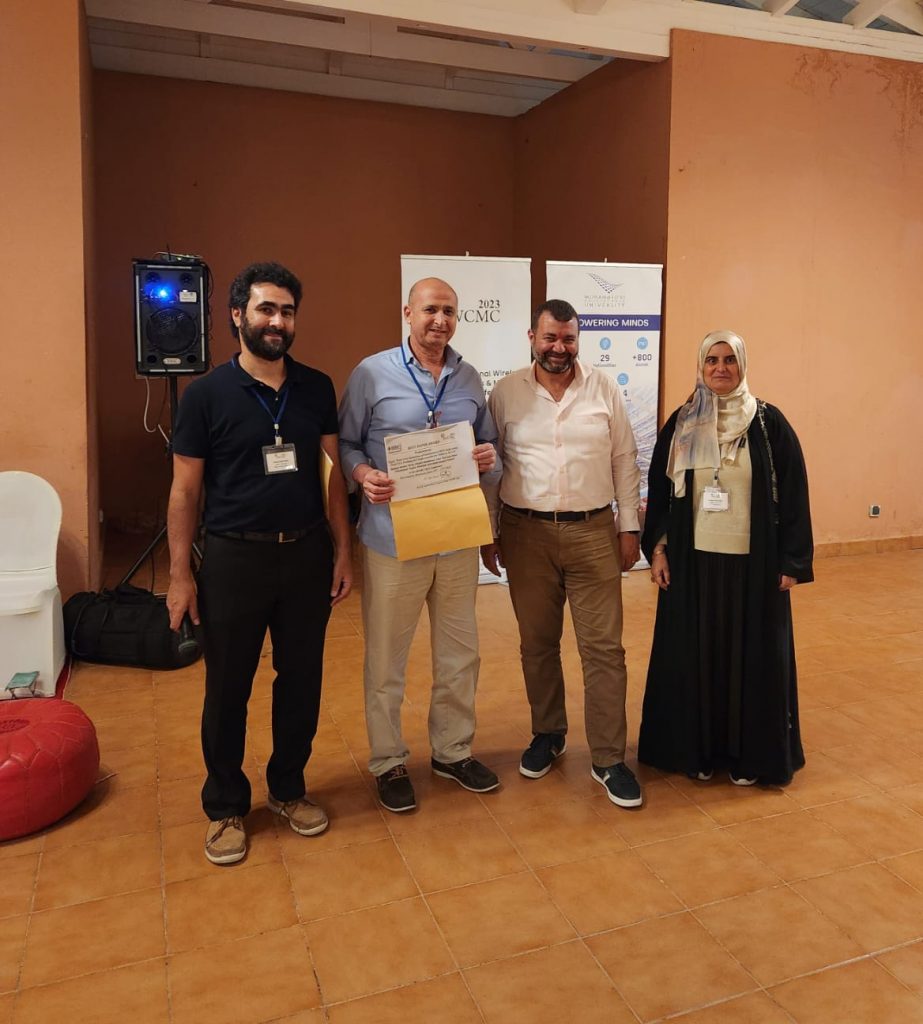
CSE faculties were awarded at CENG End of Year Event
June 13, 2023 / Leave a comment
Three CSE faculty members have received awards at the College of Engineering End of Year ceremony held on 13 June 2023.
Dr. Tamer Elsayed was awarded the “Dean’s Award for Excellence in Research” for his research work.
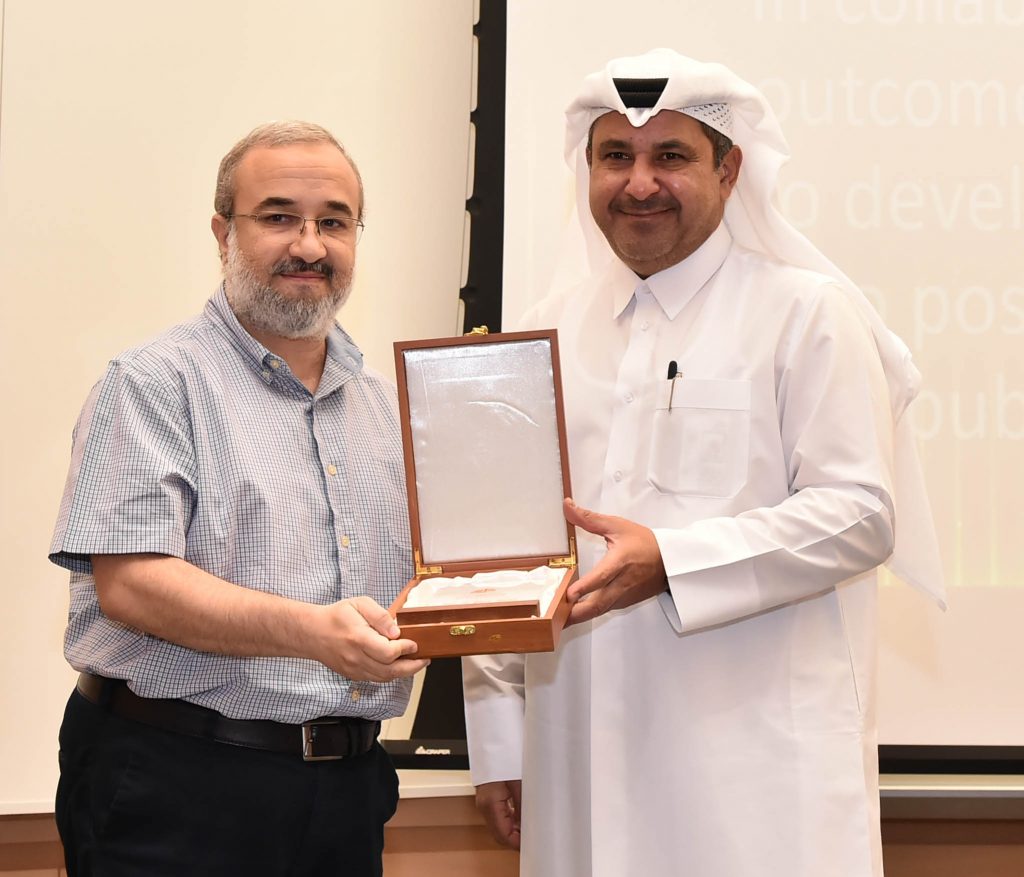
Eng. Heba Dawoud was warded the CSE department Excellence in Services award.
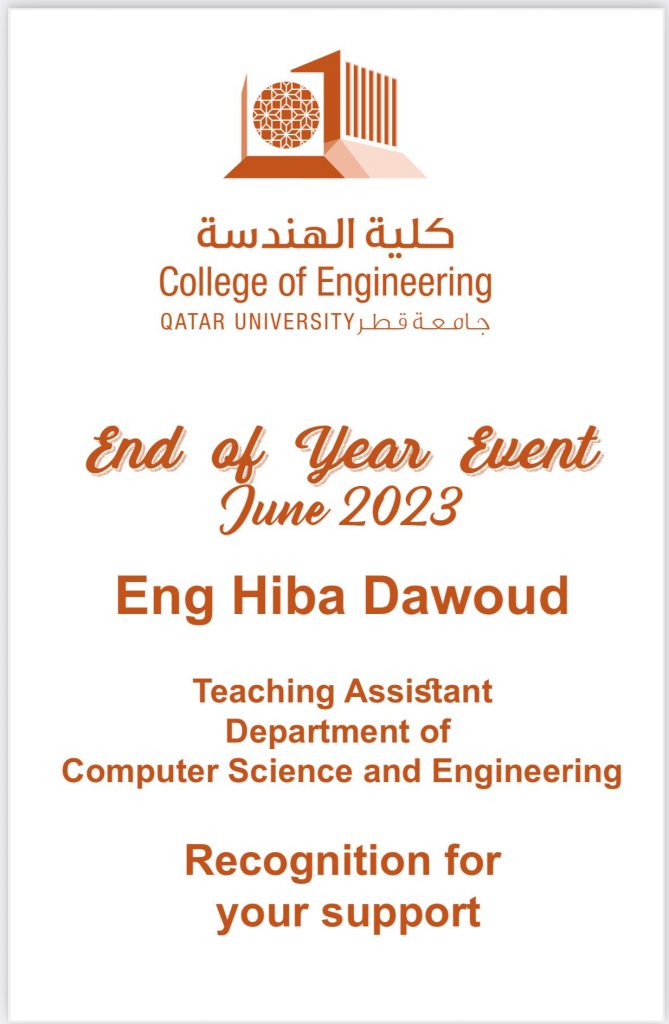
Finally, Dr. Abdulla Al-Ali was recognized by the College of Engineering for the end of his tenure as the CSE Head of Department.
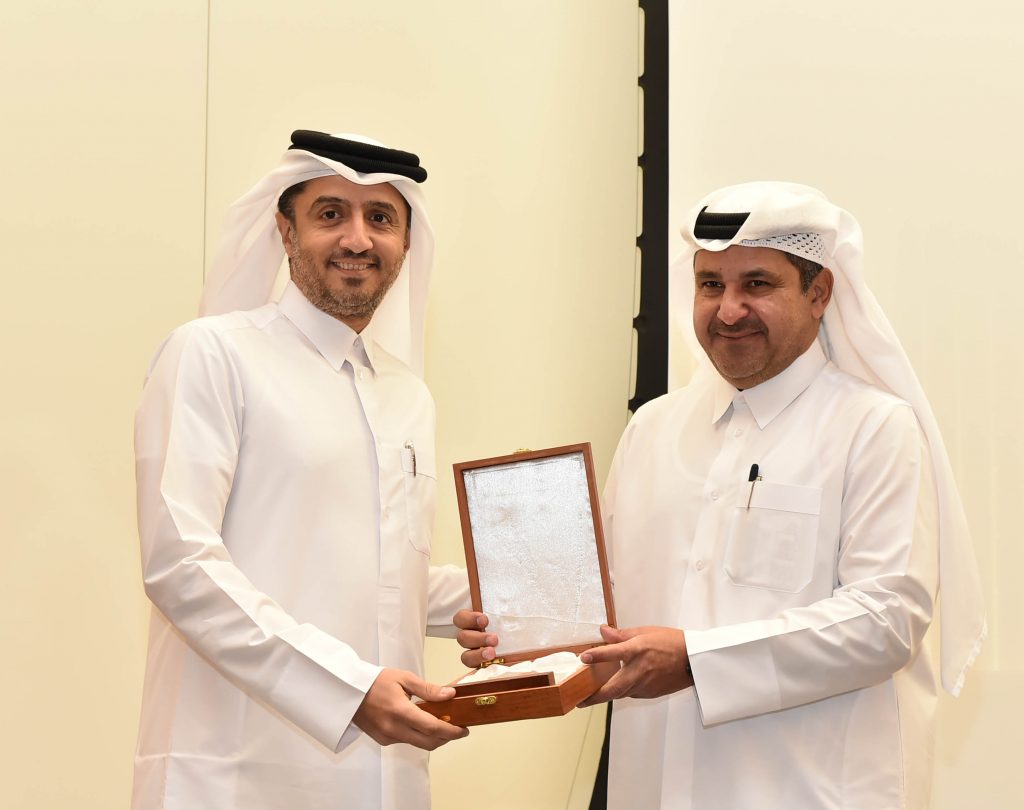
CSE faculties contribute to QU 14th Excellence Day
June 13, 2023 / Leave a comment
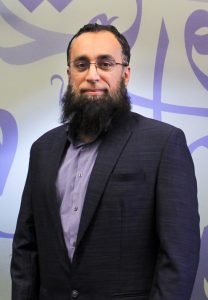
Two CSE faculty members have delivered talks at the QU 14th Excellence Day event, themed “AI in Higher Education: Navigating the Future., which was organized by the QU Center for Excellence in Teaching and Learning (CETL) on June 13, 2023.
Prof. Junaid Qadir delivered a plenary talk titled “Educating for the AI Revolution: Fostering a Holistic Human-Centered Approach Based on Wisdom and Multiplexity”. The talk attracted a packed audience consisting of QU faculty members and external guests. During the talk, Prof. Qadir introduced the audience to the opportunities and challenges presented by new general-purpose AI developments. He highlighted the disruptive impact of these tools on higher education and emphasized their potential to enhance human intelligence, capabilities, and productivity. However, he also stressed the importance for educators to be cautious of limitations such as biases, hallucinations, and misinformation. The discussion further explored effective strategies for higher education to adapt to these dynamic times, ensuring social welfare, enhanced human capabilities, inclusivity, and openness.
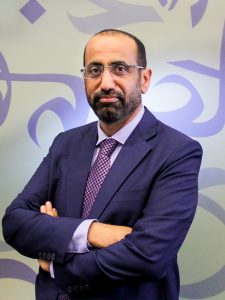
Additionally, Dr. Saleh Alhazbi delivered a presentation titled ‘Learning Analytics from prediction to prescription’ during the same event. The presentation highlighted the ongoing efforts in utilizing AI to analyze students’ traced data collected by learning management systems (LMS), and how the objective has been shifted from solely predicting students’ performance to providing proactive feedback aiming to enhance their learning experience. Furthermore, the presentation provided insights into the challenges related to learning analytics. These challenges encompassed ethical considerations, the impact of learners’ internal conditions like motivation, the influence of external conditions such as the nature of the subject being studied, and the role of instructors in the learning process.
